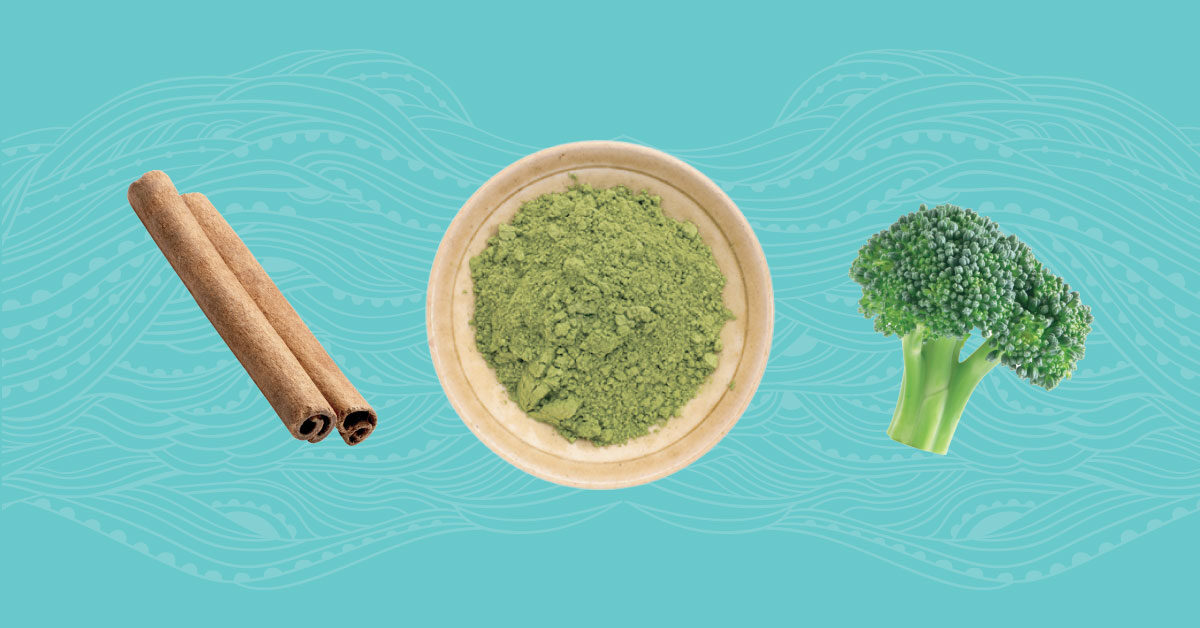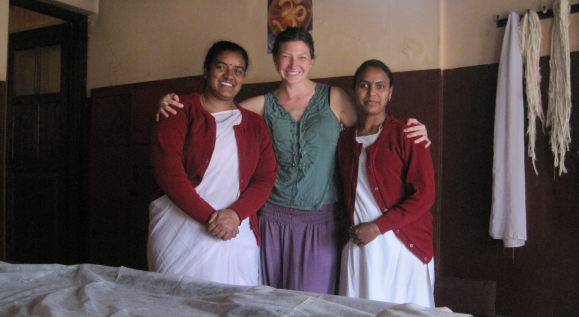How To Heal Your Body From PCOS Naturally
Dr. Kyle Willets was 23 years old when she had her first panic attack. She's about to complete her doctorate in physical therapy, move in with her long-term boyfriend and start her career. But none of that feels important right now because she feels like she's breaking apart, and her body is shutting down.
Author:James PierceReviewer:Karan EmeryAug 02, 20237.1K Shares311.5K Views

Dr. Kyle Willets was 23 years old when she had her first panic attack. She's about to complete her doctorate in physical therapy, move in with her long-term boyfriend and start her career. But none of that feels important right now because she feels like she's breaking apart, and her body is shutting down. She feels extreme fatigue, brain fog, radically flipping emotions, and overwhelm.
What's equally troubling is that her period is irregular and often absent for months, and when she does get it, she's bedridden with pain for days straight.
As she feels her health slipping away, she feels clueless, helpless, and alone about what is going on and how to help herself get back on track. She finally squeezed in a short break from school to see her OBGYN about her periods, and the OBGYN performed an intravaginal ultrasound.
The diagnosis? PCOS (polycystic ovarian syndrome) The OBGYN found that she had a bunch of cysts that made her ovaries look like chocolate chip cookies.
As the doctor comments on the textbook's appearance and implications, she feels her mind going blank. As a runner, a healthy eater, and someone who has been studying health for seven years, How is her health so messed up!?But there it is, clear as day on the intravaginal ultrasound — multiple cysts in both of her ovaries.
She thought she had it all figured out—she hadn't even graduated yet, and she was already being recognized as a leader in the field of physical therapy. But she had been moving so fast with so much motivation that she hadn't even noticed her body showing the early signs of suffering.
When her OBGYN prescribed birth control (and no other changes), she simply popped the pill, and back to school she went. The pill regulated her period but not her other symptoms. As she was finishing up her final internship, things started to worsen: more physical symptoms, pain throughout her whole body, and debilitating fatigue.
The anxiety was so bad that it pushed her to end what was the most significant relationship of her life. The pain, fatigue, and anxiety were so debilitating that she honestly didn't know if I'd be able to finish the last two months after seven years in school. Her internship had her working with a daily patient load of 30+ people, and each day felt like a marathon of effort just to survive.
Turning Point
Despite her best efforts to hide her exhaustion, her mentor at the time noticed that she was struggling. He took her aside and sternly told her that if she was going to help people get better and be successful in her career, she needed to know how to take care of herself first.
At first, she remembers being really angry with him. She felt simultaneously insulted and guilty for not being more healthy and energized. More than that, though, she felt shame. She was winning awards, graduating at the top of her class, and felt that she knew how to help people.
So while it felt like a slap in her face at first, it really was the wake-up call she needed. She was suffering, and she needed to first accept that and then make changes fast, or else she was headed toward a full-blown autoimmune disorder or worse.
She desired more than anything to have a fulfilling career helping people, a life full of adventure, and a loving partner to share it with.
But she had to face the facts.
If she was going to fulfill her dream of being a practitioner who helps others thrive in life, she first needed to heal herself and start to thrive in her own life. If she was going to have the happy, healthy relationship that she so desired, she needed to make herself happy, strong, and emotionally resilient first.
And she knew that taking more pills and suppressing the symptoms was not the long-term solution. She became determined to find the root cause of these symptoms. She was young and scared and honestly didn’t see many alternatives out there, but she was determined to find a way to get off of medications and restore her health naturally.
It was a difficult shift to make. And at first, she didn’t know what she needed to do. She didn't even have any income yet, but she decided she was going to do everything it took to uncover the solution to her health problems.
She started to change the way she thought about health completely. The body is dynamic and fluid, and she made it her mission to help the body do what it does best—and that’s heal.
Building Momentum
For the next several years, she altered her life to master everything about nutrition and hormones and what it means to have a healthy lifestyle.
For Dr. Kyle Willets, that meant that she had
- Flew to India and studied Ayurveda.
- Studied yoga and became a therapeutic yoga instructor.
- Studied nutrition, habit science, and developed cooking skills.
- Learned how to put herself to bed at night and fall deeply asleep.
- Learned how to wake herself up in the morning and feel energized for the day.
- Went on retreats, danced in healing drumming circles, took a dip in the dead sea.
- Practiced Qigong in the woods. Lite candles and meditated.
- Worked with prayer and gratitude practices.
- Held onto crystals and did a breathing practice that felt like lamaze.
- Worked with integrative health coaches, worked with counselors to understand her anxiety, worked with a shaman, studied reiki.
- Took an 8-week course on Mindfulness-Based Meditation.
- Tried different diets, including vegan, vegetarian, gluten-free, soy-free, dairy-free, and Paleo.
She read books, listened to live events, listened to podcasts, and did everything she could to learn about health and the impact of stress on hormones. The more she learned, the more she realized that she could reverse the health symptoms and challenges.
It took her years of searching and learning how she healed her body from PCOS naturally and discovering how she finally got to the health she has now.
And what she found changed her life forever. She was now thriving, healthy, strong, competing in half marathons and had the strength and vitality to have adventures, show up whole and happy in relationships, and live the life she wanted to be living.
The Solution
It's not true that the only way to get a natural period is to go on birth control (which, of course, is not a natural period). She learned how to heal her body and fix her hormonal health imbalances, including PCOS, not getting her period, painful periods, and feeling exhausted all the time. And she learned how to do this without pills by finding the root cause.
At the core of her comprehensive program is an understanding that we each have a unique mind-body type. The protocol starts with learning about our unique needs and creating a personalized diet and lifestyle prescription to support them.
She'd like to share with you a major component of the protocol for women trying to conceive, The Fertility Diet.
The Fertility Diet - What To Eat To Boost Your Fertility + Fertility Menu
Lean Proteins: Iron is a key nutrient to aid in fertility and one of the best source of iron is found in eating lean meat such as organic, grass-fed poultry, bison, and lamb. Studies suggest that women who bump up their iron intake have a higher fertility rate than women who are iron-deficient. Increasing iron intake is especially important in the second half of your cycle. Vegan sources include lentils, pumpkin seeds, or an iron supplement.
Healthy Fats: Omega 3’s are linked with improving fertility in preconception. Foods such as salmon, sardines, and herring are great sources. They increase blood flow to the reproductive organs and serve to regulate reproductive hormones. Vegan sources include flax seeds, hemp seeds, walnuts, and chia seeds.
Whole Grains: Healthy carbs support healthy fertility. Eating a modest amount of whole grains is one of the best ways to keep blood sugars regulated, energy stabilized, and hormones balanced. Bear in mind that a whole grain is one that is unprocessed (quinoa, brown rice, and whole oats). Stay clear of white rice, white bread, and especially simple sugars that will spike blood sugar and disrupt your ovulation cycle.
Fruits + Veggies: Fruits and vegetables, especially those that are high in fiber, help to flush out excess estrogen. Choose fruits and veggies that are low glycemic such as raspberries, pears, green peas, fennel, asparagus, and zucchini. These foods are also high in antioxidants and nutrients such as folic that help to balance out hormones.
Sample Fertility Menu
- Breakfast: Mini-muffin frittatas with asparagus and mushroom or 2 eggs scrambled with kale
- Lunch: Zucchini noodle bowl with quinoa, toasted pepitas and a sesame lime dressing
- Snack: Handful of walnuts or chia nut energy bar
- Dinner: Roasted salmon and sautéed zucchini with simple olive oil, lemon, salt and pepper to taste
- Dessert: Fresh raspberries
Notice that there isn't any dessert other than fresh fruit. Sugar can be a major contributor to causing hormonal imbalance and can even disrupt ovulation (learn more here). Follow the above diet guidelines and start healing your body today.

James Pierce
Author

Karan Emery
Reviewer
Latest Articles
Popular Articles
